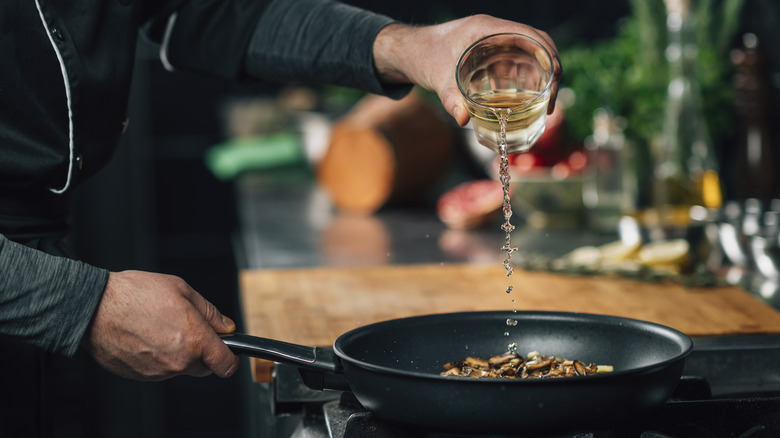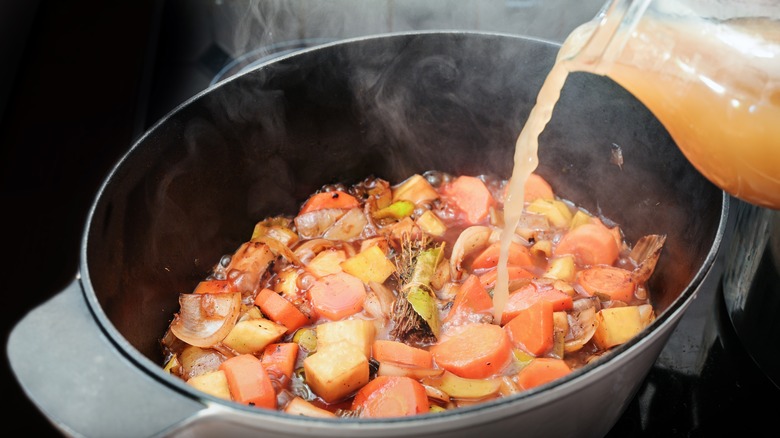The White Wine Substitute You Need For Booze-Free Cooking
There's nothing worse than a recipe calling for a cup of white wine, and you realize that you just ran out. Or perhaps you're just looking to make a recipe that calls for wine but don't want to include any alcohol at all. Whatever the case, knowing the best booze-free substitutions should be high on your list of cooking knowledge.
Since white wine brings flavor and acid to a recipe, it's important to consider all of these elements when thinking about what you can use to replace it. One popular option is using light-colored vinegar like apple cider vinegar, white vinegar, red wine vinegar, or rice vinegar (not to be confused with rice wine). The only real rule for using vinegar is that you have to dilute it, because it's much more acidic than white wine (with vinegar coming in at about 4% to 5% acidity, and white wine between 0.7% and 0.9%). For every cup of wine, replace it with ½ cup of vinegar mixed with ½ cup of water.
Another option is to use white grape juice (which also works as a substitute for apple juice) with a splash of vinegar. Keep in mind that because it's much sweeter than wine, you may want to dilute it — especially if a recipe is on the sweeter side as it is. For every cup of wine, use ½ cup of white grape juice mixed with ½ cup of water.
Other substitutes for alcohol-free cooking
While vinegar and white grape juice are great alternatives to white wine in cooking, there are other options that are also important to know about. Broth, for example, is one substitute that not only adds the necessary liquid, but also imparts a rich flavor to the recipe. It's great to use in dishes where these flavors will make a delicious impact, like in beef stew or creamy wild mushroom risotto. When using this method, you can do a 1:1 ratio of white wine to broth — and you can opt for chicken, vegetable, or beef broth, depending on the recipe and the flavors you're looking for. It's important to note that since broth isn't acidic, you may want to add a touch of vinegar to the final product.
Another option is to use diluted lemon juice. Similar to how you dilute a vinegar substitute, for every cup of white wine you'll want to use about ¼ cup of lemon juice diluted with ¾ cup of water. This will allow you to hit those acidic notes that the wine gives, but at a much more subtle level than lemon juice would on its own.
Finally, if you're in a pinch, using water can do the trick. While this won't give the dish any additional flavor, it's great when you need to deglaze a pan or add a touch more liquid to a sauce. Similar to broth, it's non-acidic, so adding a bit of vinegar can help brighten the final dish.


